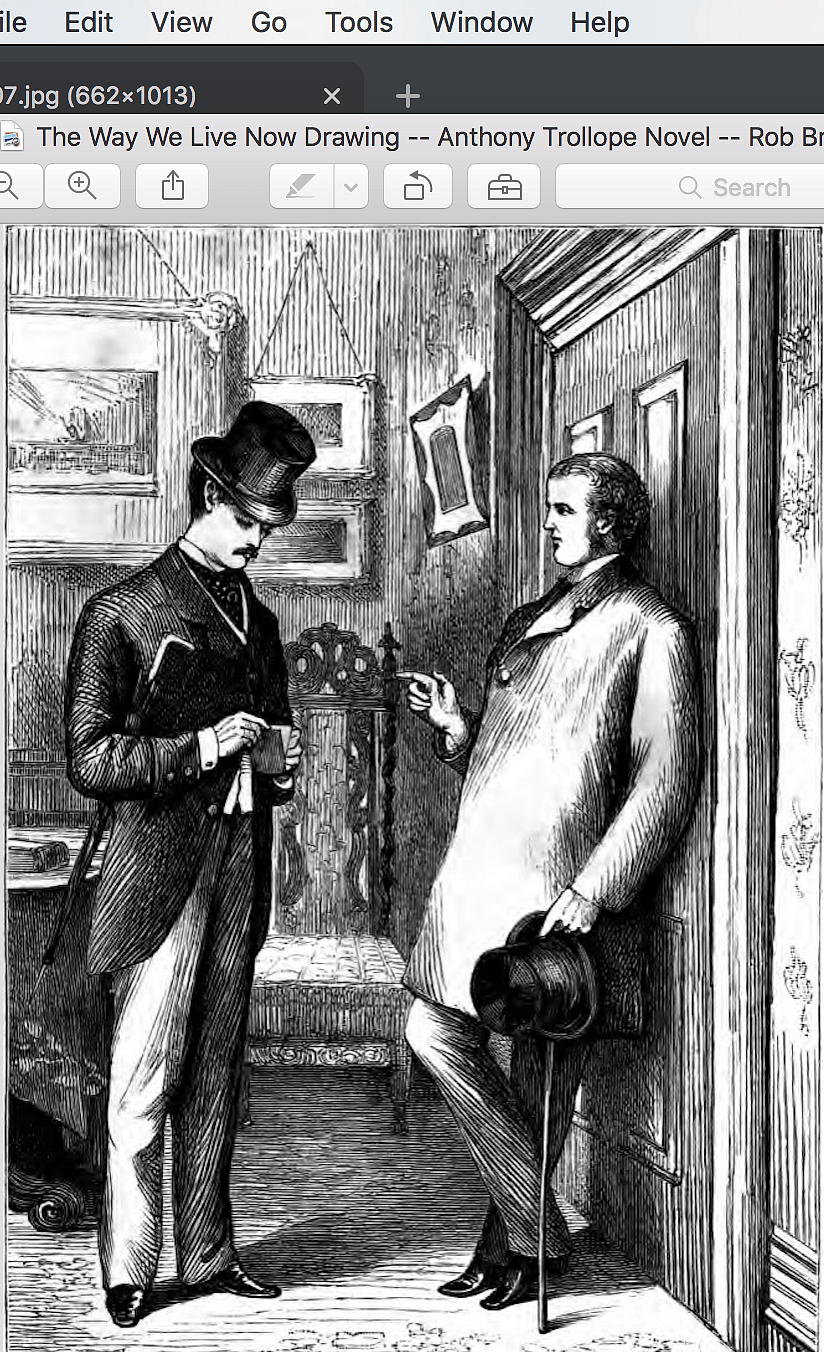Like Déjà Vu All Over Again – Book Review of Anthony Trollope’s The Way We Live Now

Anthony Trollope, who, like Charles Dickens was born in England in the mid-1810s, wrote 47 novels, several plays and a famous Autobiography … yet he is virtually unknown in America. Many of his novels, such as The Warden, the first in a series of novels called the Barchester Chronicles, were extremely popular in Victorian England. In fact, many considered Trollope a superior novelist to Dickens.
In America, however, everyone knows Charles Dickens – if only from A Christmas Carol, featuring Scrooge, who has come down through the ages as a beloved rascal and is even a word in the dictionary. Dickens is also famous as the author of Oliver Twist, which has been made into plays and movies – and, of course, for his great novels, David Copperfield, Great Expectations, and A Tale of Two Cities. Dickens is a household name.

